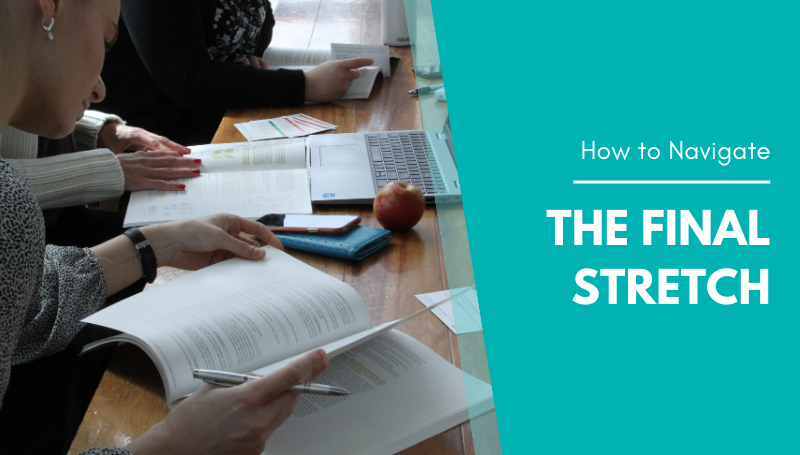
High-stakes exams have been part of your life since you chose a career in medicine. You’d think by now it would be easy! But any physician can tell you: Board prep is hard work—even for those at the top of their field.
We polled MedStudy’s Contributors—distinguished educators and practitioners from around the country who write, edit, and lecture for MedStudy resources. We asked them for their best board prep advice in the week leading up to an exam. Several themes emerged. We’ve collected them into 4 key strategies you can employ during your last prep week.
1. Focus on your weakest areas
Many of the contributors that we interviewed agreed that reviewing your weaker topics in the last week before your exam is one of the best things to do. Our StudyWise guide says that in the final weeks before the boards, do nothing but board-style Q&As. So, if you're having a hard time with endocrinology, make sure you're doing those Q&As in the final week. By exam day, you will not only be ready for the boards but for anything your work throws at you thereafter!
Here's some more advice directly from contributors:
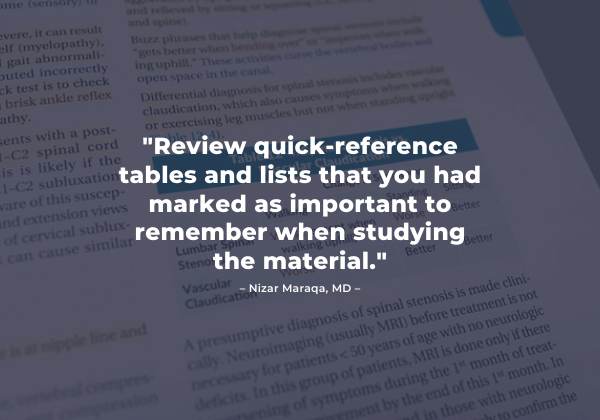
Review the stuff that you are most worried about. For my Peds boards, I felt least comfortable with neuro and development. I crammed these the week before, and those sections were my highest scores!
— Ilene Claudius, MD
Read through your study material on the area that you feel you need the most help.
— Robert A. Balk, MD
Focus on your weakest area and take notes to review the night before the exam.
— Cathy Hatchell, MD
My best advice is to review random questions and then review the areas that the questions show you need to work harder in.
— Mark R Corkins, MD
2. Make a plan for the things you can control
We've compiled a guide for everything you need to know for the day of your ABIM Exam or ABP Exam, so make sure you give it a read! The guide covers what you'll need to bring with you, what the schedule will be like, and what to know about the testing computer. This knowledge will relieve a bit of stress about exam day, and you'll feel prepared when you walk into the testing center. Here's what our contributors had to say:
Know where you’ll need to be and how long it will take to get there. Figure out parking, and what you’ll need to bring (paperwork, ID, food, layered clothing, etc.).
— Mark Yoffe, MD
Make sure you plan the route to your testing center prior to exam day. Check for traffic patterns, parking issues, food and water accessibility. Knowing your destination already takes away any stress from getting there.
— Melba I. Ovalle, MD
Scope out the test location if possible so you are not stressed out trying to find it or parking, etc.
— Cathy Hatchell, MD
3. Know how to study the week of your exam
In the final week, remember to practice recall while you're at work! And, while you're going through Q&As, recall as much as you can about the topic before you look at the answer.
Make sure you know why the correct answer is correct and why each distractor is incorrect before you move on to the next question. If you're not sure, look it up! This will help you recall the information faster next time.
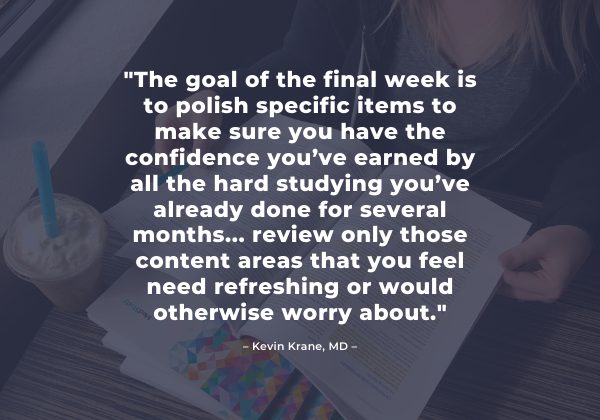
As you’re studying, create a notebook with helpful tables/figures, and notes of key points. Then, a week before the exam, review the notebook. Also, plan to do as many [Q&As] as possible divided over the time available.
— Patricia Chess, MD
Talk out loud, write on a whiteboard, quiz a study partner as you review—i.e., stay actively involved rather than passively reading. Always begin your day with a review of the day prior’s material—and end your day with a review of the current day’s material.
— Paul Catalana, MD, MPH
Go over high-yield topics.
— Maridine Co, MD
Bear in mind that it’s been a long time since I took the exam, but: Don’t try to cram too hard. You already know most of the material you should. Just review some simple things that can be easily studied like, for example, CSF findings in meningitis.
— lan Morgenstein, MD
I review all the notes I have taken, making sure to review all formulas, photos of dermatology lesions, and eye findings.
— Theresa Buck, MD
Review high-yield facts and pearls, plus practice questions.
— Rafael Turbay, MD
4. Stay on top of self-care
Nothing is as important for exam day as your mental and physical health! So make sure you're taking time for self-care. This includes sleeping well, getting some exercise, and limiting alcohol and caffeine.
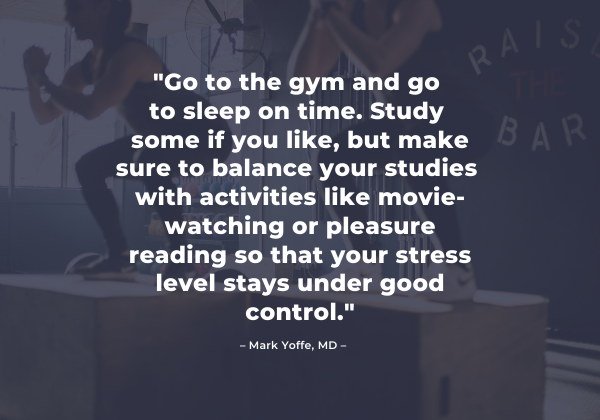
Continue to pay attention to healthy eating, sleep hygiene and exercise. Address anxiety with coping skills that you hopefully have previously established.
— Paul Catalana, MD, MPH
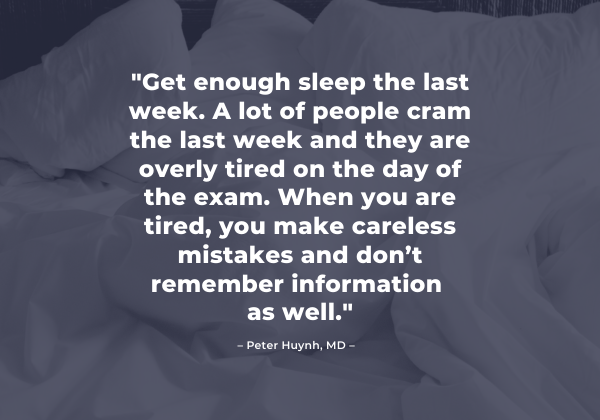
Pro Tip: Follow @MedStudyStrong and flip through our story highlights for additional Q&As.
We hope these tips help you focus your final week of study. You've got this!


